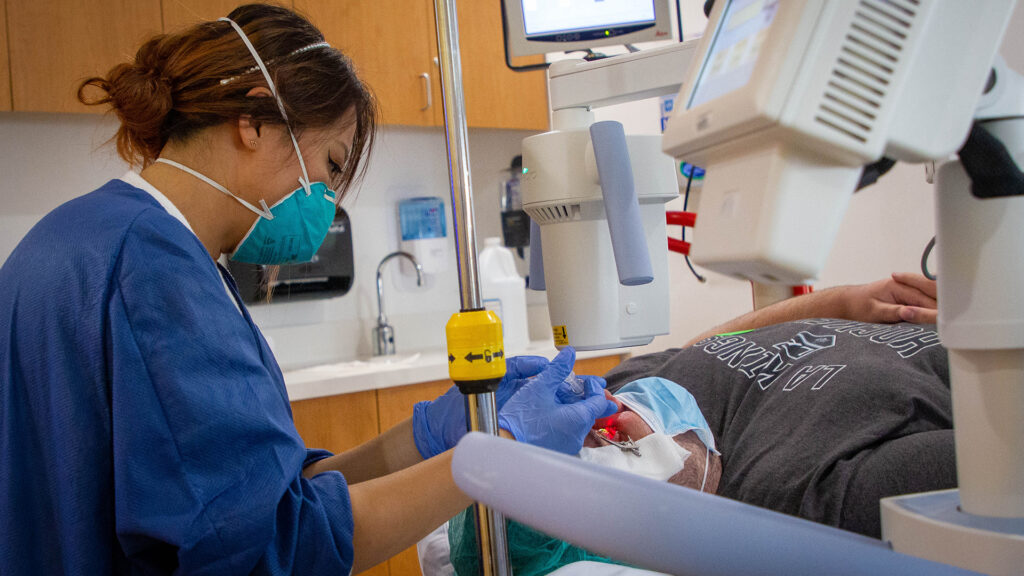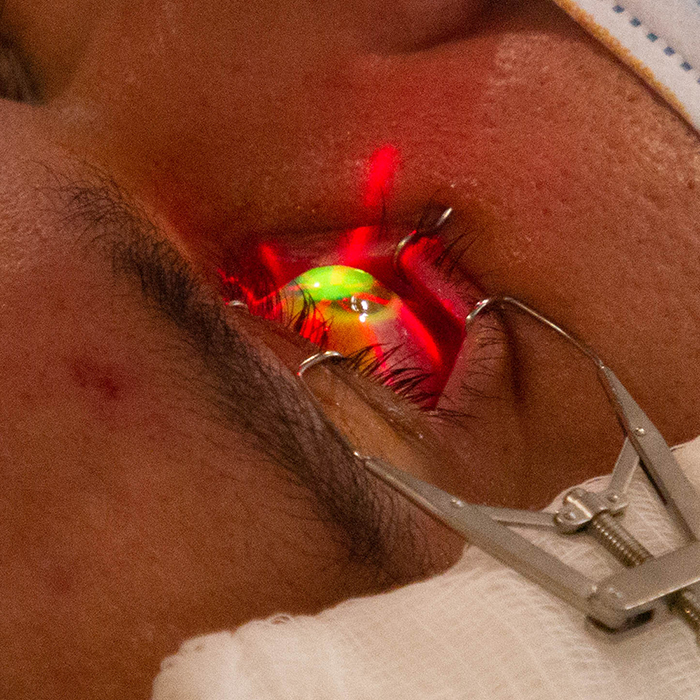Corneal Cross-Linking (CXL) for the Treatment of Keratoconus
Corneal cross-linking (CXL), a newly FDA-approved treatment for keratoconus, uses a combination of ultraviolet-A light irradiation and application of riboflavin (vitamin B2) eye drops to stabilize the cornea. Members of the USC Roski Eye Institute faculty have been at the forefront of advancing CXL treatment for keratoconus. Farhad Hafezi, MD, PhD, Adjunct Clinical Professor of Ophthalmology at the USC Roski Eye Institute and Professor of Ophthalmology at the University of Geneva, Switzerland was among the earliest investigators in Europe to study and utilize CXL both in the laboratory and in patients with progressive keratoconus and post-LASIK ectasia.

Keratoconus occurs when the cornea (the clear, dome-shaped front surface of the eye) thins and gradually bulges outward into a cone shape. A cone-shaped cornea causes blurred vision and may cause sensitivity to light and glare, problems with night vision and sudden worsening or clouding of vision. This may lead to reduced vision that cannot be corrected with eyeglasses.
When compared to the two main causes of blindness—cataract and glaucoma—keratoconus affects a small portion of the general population. On a global level, keratoconus is a leading cause for severe visual impairment in children and adolescents. Research has also identified that people with Down Syndrome are at a much higher risk. Early keratoconus has been greatly under-diagnosed in this group, attributing it to the possibility of poor communication or compliance during visual acuity tests.
Hafezi is spearheading a clinical study in Saudi Arabia to better understand the prevalence of keratoconus among Saudi children and adolescents. Current data suggests that keratoconus has a higher incident rate in Middle Eastern countries. The study, in collaboration with Light for Sight Foundation, Salus University, Pennsylvania and King Saud University, Saudi Arabia, plans to enroll more than 1,500 patients.
Hafezi has authored multiple publications on CXL and co-edited the first academic textbook on the topic, Corneal Collagen Cross-Linking, in 2013. A second edition came out in late 2016.
Corneal cross-linking is now available at the USC Roski Eye Institute. Please call us at (323) 442-6335 or fill-out our online form for more information.

I’ve been in good hands throughout my exams, the corneal transplant and the new corneal cross-linking treatment.
– Adam Lyons, Corneal Cross-Linking (CXL) Patient
Does Insurance Cover Cross-Linking?
Insurance coverage for FDA approved cross-linking is now widely available as an increasing number of commercial insurance carriers are recognizing the medical necessity of the procedure. Greater than 95% of the commercially insured population has access to this potentially sight-protecting treatment. Please call 323-442-6335 with insurance questions.
